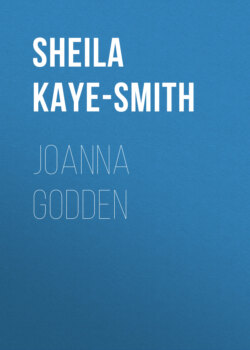Читать книгу Joanna Godden - Sheila Kaye-Smith - Страница 16
На сайте Литреса книга снята с продажи.
§11
ОглавлениеTable of Contents
Arthur Alce was very much upset by the gossip about Joanna.
"All you've done since you started running Ansdore is to get yourself talked about," he said sadly.
"Well, I don't mind that."
"No, but you should ought to. A woman should ought to be modest and timid and not paint her house so's it shows up five mile off—first your house, and then your waggons—it'll be your face next."
"Arthur Alce, you're very rude, and till you learn to be civil you can keep out of my house—the same as you can see five mile off."
Alce, who really felt bitter and miserable, took her at her word and kept away for nearly a fortnight. Joanna was not sorry, for he had been highly disapproving on the matter of the Spanish sheep, and she was anxious to carry out her plan in his absence. A letter to Garlinge Green had revealed the fact that Socknersh's late master had removed to a farm near Northampton; he still bred Spanish sheep, but the risk of Joanna's venture was increased by the high price she would have to pay for railway transport as well as in fees. However, once she had set her heart on anything, she would let nothing stand in her way. Socknersh was inclined to be aghast at all the money the affair would cost, but Joanna soon talked him into an agreeable "Surelye."
"We'll get it all back," she told him. "Our lambs ull be the biggest at market, and ull fetch the biggest prices too."
It pleased Joanna to talk of Socknersh and herself as "we," though she would bitterly have resented any idea of joint responsibility in the days of Fuller. The rites of lambing and shearing had not dimmed her faith in the high priest she had chosen for Ansdore's most sacred mysteries. Socknersh was a man who was automatically "good with sheep." The scared and trembling ewes seemed to see in him a kind of affinity with themselves, and lay still under his big, brown, quiet hands. He had not much "head," but he had that queer inward kinship with animals which is sometimes found in intensely simple natures, and Joanna felt equal to managing the "head" part of the business for both. It pleased her to think that the looker—who is always the principal man on a farm such as Ansdore, where sheep-rearing is the main business—deferred to her openly, before the other hands, spoke to her with drawling respect, and for ever followed her with his humble eyes.
She liked to feel those eyes upon her. All his strength and bigness, all his manhood, huge and unaware, seemed to lie deep in them like a monster coiled up under the sea. When he looked at her he seemed to lose that heavy dumbness, that inarticulate stupidity which occasionally stirred and vexed even her good disposition; his mouth might still be shut, but his eyes were fluent—they told her not only of his manhood but of her womanhood besides.
Socknersh lived alone in the looker's cottage which had always belonged to Ansdore. It stood away on the Kent Innings, on the very brink of the Ditch, which here gave a great loop, to allow a peninsula of Sussex to claim its rights against the Kentish monks. It was a lonely little cottage, all rusted over with lichen, and sometimes Joanna felt sorry for Socknersh away there by himself beside the Ditch. She sent him over a flock mattress and a woollen blanket, in case the old ague-spectre of the Marsh still haunted that desolate corner of water and reeds.
